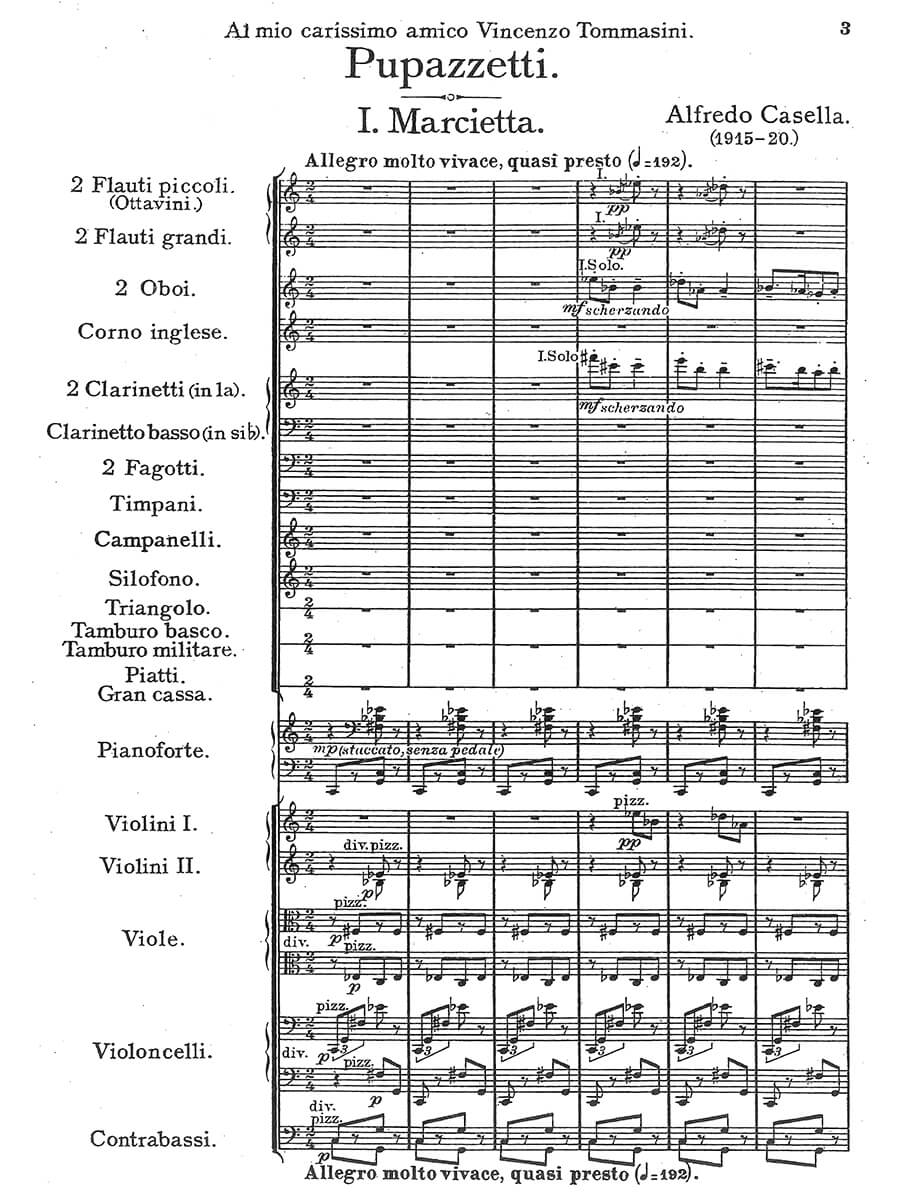Pupazetti for orchestra
Casella, Alfredo
20,00 €
Preface
Alfredo Casella – Pupazzetti Op.27 bis
(b. Turin, 25 July 1883 – d. Rome, 5 March 1947)
Preface (Alasdair Jamieson, 2018)
Alfredo Casella was a musical polymath- a composer, certainly, but also an administrator, organizer, pianist, conductor, and (history now confirms) a catalyst for musicians of his and the following generations. His childhood interests were divided between music and science, but in 1896 he followed the advice given by Martucci and Bazzini and sat (and passed) the entrance examination for the Paris Conservatoire. The young Casella found the French capital’s cultural life much to his liking, so much so that he spent the next 19 years there. Around the turn of the century the focus of his interests moved from piano playing to composing, largely inspired by his attending Fauré’s compositional classes. His fellow students included Roger-Ducasse, Koechlin, and Ravel with whom Casella became close friends. He absorbed manifold musical and artistic influences like a sponge: in music the works of Debussy, the Russian nationalists, Richard Strauss and Mahler, in art Futurism, Cubism and pittura metafisica. As if to reflect the various stimuli of Belle Époque Paris Casella’s music before the First World War is technically assured, but filled with sounds filtered in from other composers. Thus the Barcarola e scherzo, Op.4 sounds like Fauré (and very attractively so), while the symphonies would later be advertised in a spoof magazine advertisement as ‘Two solid symphonies for sale, written in the German Strauss-Mahler tradition. Thorough workmanship. Unoriginality guaranteed.’ Casella was instrumental in getting Mahler to come to Paris to conduct his ‘Resurrection’ symphony in April 1910. As a type of repayment Mahler got his publisher (Universal Edition) to publish the younger man’s Italia rhapsody, Op.11. Italia marked a growing self-awareness of Casella’s Italian personality: he would make his permanent residence in Rome from 1915 onwards. Before that he attended the riotous premiere of The Rite of Spring in May 1913, and the First World War broke out the following year: these events, combined with his increased italianità caused an abrupt change of musical style.
Read full preface > HERE
Score Data
| Edition | Repertoire Explorer |
|---|---|
| Genre | Orchestra |
| Size | 210 x 297 mm |
| Printing | Reprint |
| Pages | 60 |
